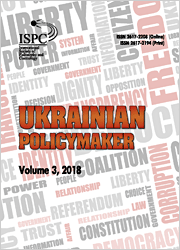Philosophical Views of Thomas Jefferson on Religion and Politics
Philosophical Views of Thomas Jefferson on Religion and Politics
Author(s): Yaroslav SobolievskyiSubject(s): Politics / Political Sciences, Philosophy, Theology and Religion, Politics and religion
Published by: Международное философско-космологическое общество
Keywords: Thomas Jefferson; American philosophy; American Enlightenment; religion; politics;
Summary/Abstract: The article examines the philosophical views of the American enlightener Thomas Jefferson on religion and politics. The social and political ideas of the philosopher are studied; the main attention is paid to the study of the letters of the philosopher and the demonstration of views on the problem of freedom of religion and the basis of morality. The main ideal of the thinker is freedom, to which he aspires both in politics and in religion. Freedom and reason bring people closer to a pure religion that glorifies only one God, and focuses on inner experience, and not on rituals. In matters of ethics, Thomas Jefferson tended to the existence of an innate moral sense, which does not depend on the knowledge of the basics of ethics. God created people, and laid the foundations of moral behaviour in us, and therefore it is erroneous to think that morality is the result of scientific searches of thinkers. The best existing ethics Jefferson believes Christian ethics, which has strengthened monotheism, it is not aimed at an act, but on a motive,but unlike ancient ethics, Christian doctrine has a universal character. Philosophical views of Jefferson on the problem of politics and religion are revealed through moral philosophy. Studying the heritage of antiquity allowed the philosopher to analyze Christianity and other world religions for worldview.
Journal: Ukrainian Policymaker
- Issue Year: 3/2018
- Issue No: 3
- Page Range: 58-64
- Page Count: 7
- Language: English

